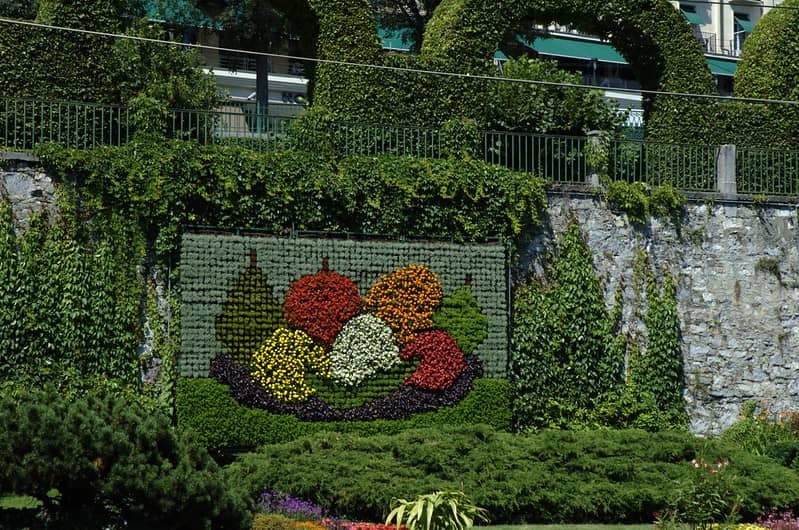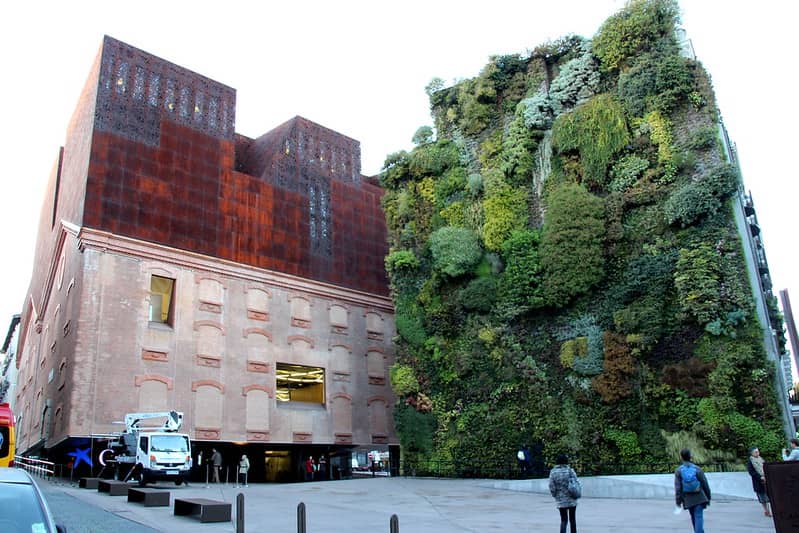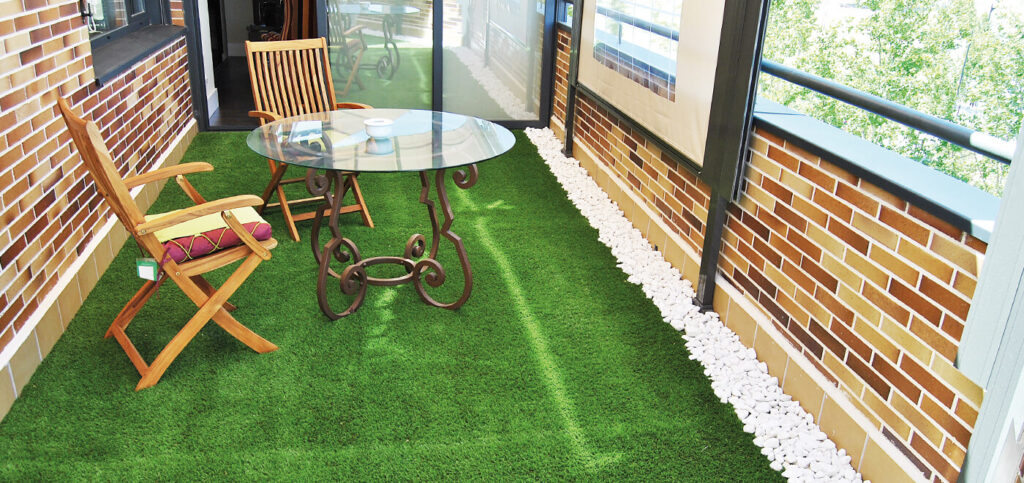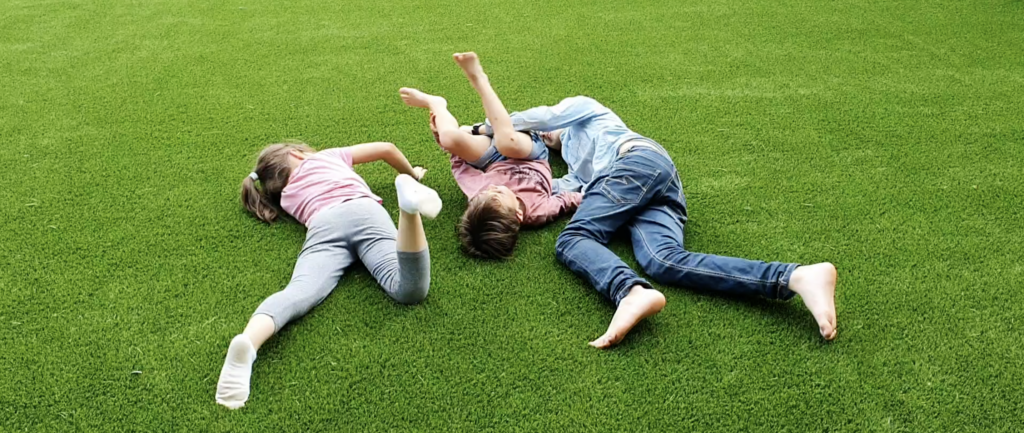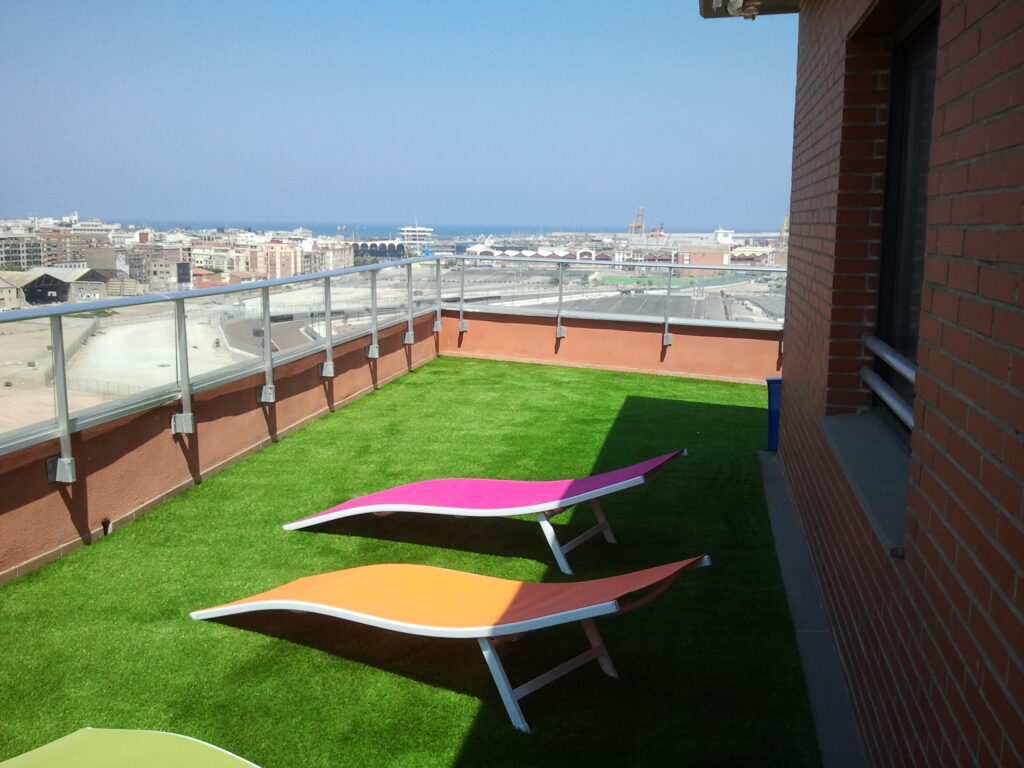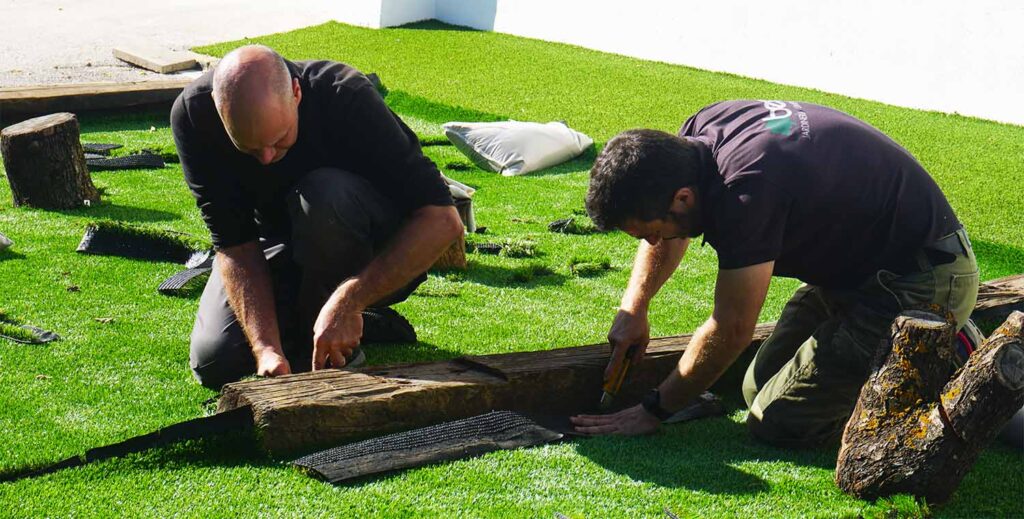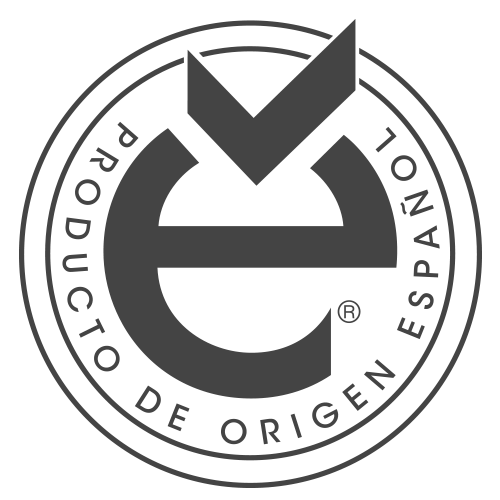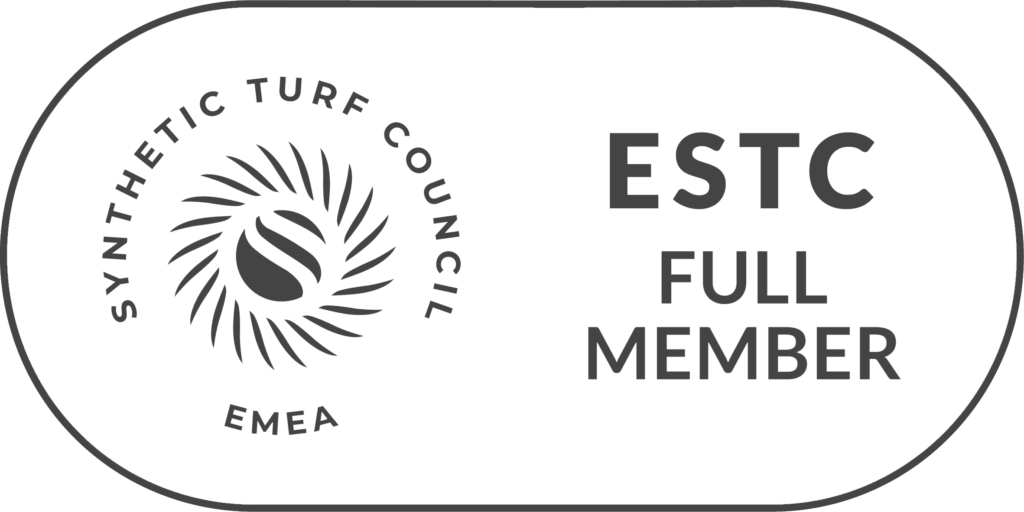Vertical gardens have revolutionized modern landscape design, providing an innovative and aesthetically pleasing solution for integrating nature into urban and residential settings. This article will explore what vertical gardens are, their growing popularity, and how the use of high-quality artificial turf can significantly enhance these spaces. We will also highlight the advantages and key features of artificial turf for vertical gardens, and why it is crucial to choose a turf that is non-glare and dense for optimal visual impact.
What are vertical gardens?
Vertical gardens, also known as green walls or living walls, are structures that allow plants to be installed on a vertical surface, maximizing the use of available space. These structures can be installed both indoors and outdoors and are designed to support a variety of vegetation, from ornamental plants to herbs and vegetables.
The essence of vertical gardens is to transform walls and vertical surfaces into living gardens, bringing freshness and a touch of nature to urban areas and small spaces. In addition to beautifying the environment, these gardens also contribute to improving people’s general well-being.
The popularity of vertical gardens in landscape design.
In recent years, vertical gardens have gained considerable popularity in landscape design for several reasons:
- Space optimization: In densely populated cities, where horizontal space is limited, vertical gardens offer a practical alternative to incorporate vegetation without taking up land.
- Aesthetics and design: Green walls bring a unique, modern aesthetic, transforming drab walls into vibrant displays of greenery. Landscape designers use them to create stunning focal points and add an element to urban spaces.
- Sustainability: Vertical gardens contribute to sustainability by improving air quality, reducing noise pollution and providing thermal insulation. In addition, they can be designed to collect and reuse rainwater, promoting a more efficient use of resources.
- Well-being and health: The presence of plants in the environment has been shown to have positive effects on people’s mental and physical well-being. Vertical gardens not only beautify spaces, but also create healthier and more pleasant environments.
Visual impact of high-quality artificial turf in vertical gardens
One of the elements that can elevate the visual impact of a vertical garden is the use of high quality artificial turf. This type of turf offers a number of advantages that make it ideal for use in green walls, especially in urban and residential settings.
Natural and attractive aesthetics
High-end artificial turf is distinguished by its natural and realistic appearance. Unlike lower quality turf, which can look plastic and shiny, high-end artificial turf is designed to perfectly mimic the texture and color of natural grass. This is crucial in vertical gardens, where the grass is seen up close and must blend in harmoniously with other plants and decorative elements.
Durability and resistance
Artificial turf is extremely durable and weather resistant. It does not fade with exposure to the sun, does not deteriorate with rain and is able to withstand sudden changes in temperature. This resistance makes it ideal for outdoor vertical gardens, where weather conditions can be variable and extreme.
Low maintenance
One of the biggest advantages of artificial turf is its low maintenance. It does not need to be watered, mowed or fertilized, which saves time and resources. In a vertical garden, where access for maintenance can be complicated, artificial turf represents a practical and efficient solution.
Importance of artificial turf aesthetics and density
To achieve an exceptional visual impact in a vertical garden, it is essential to choose an artificial turf that is not shiny and has a high density. A shiny lawn can look fake and detract from the beauty of the garden design. On the other hand, a dense turf ensures that the surface looks full and lush, with no empty areas that can detract from the attractiveness of the green wall.
Advantages of artificial turf in vertical gardens
The use of artificial turf in vertical gardens offers multiple advantages that contribute to its popularity and effectiveness:
Natural and attractive aesthetics
Artificial turf provides a natural and attractive aesthetic that can significantly enhance the look of any vertical garden. Its realistic appearance and smooth texture make it indistinguishable from natural grass, creating a visually pleasing and inviting environment.
Durability and resistance
Artificial turf is designed to withstand the most adverse conditions, including constant exposure to sun, rain and wind. Its durability and weather resistance make it an ideal choice for outdoor vertical gardens, where natural plants may have difficulty surviving.
Low maintenance
Unlike natural grass, which requires watering, mowing and fertilization, artificial turf is virtually maintenance-free. This not only saves time and effort, but also reduces water consumption and the need for chemicals, contributing to a more sustainable and environmentally friendly approach.
Adaptability to space
Artificial turf can be installed in any space, regardless of its size or shape. This makes it extremely versatile and suitable for a wide variety of applications, from small balconies to large exterior walls.
No need for water or electricity
Unlike natural plants, artificial turf does not require water or light to stay green and vibrant. This is especially beneficial in indoor vertical gardens or in areas with insufficient light conditions, where maintaining natural plants can be a challenge.
Combination with natural plants
Artificial turf can be easily combined with natural plants to create a more varied and dynamic vertical garden design. This combination allows you to take advantage of the benefits of artificial turf while enjoying the beauty and benefits of live plants.
Key features of artificial turf for vertical gardens
When choosing artificial turf for vertical gardens, it is important to consider several key features to ensure an optimal result:
Natural appearance
Artificial turf should have a natural and realistic appearance, with a texture and color that mimics natural grass. This is essential for a positive visual impact and to make the vertical garden look as authentic as possible.
Adequate density
The density of the turf is crucial to avoid showing gaps in the vertical garden. Dense turf creates a more uniform and attractive surface, which is especially important in a vertical installation where every detail is more visible.
Strength and durability
Artificial turf must be resistant to adverse weather conditions and constant exposure to the sun. A durable turf ensures that the vertical garden maintains its attractive appearance for a long time without frequent replacements.
Lightweight
For vertical gardens, it is advisable to choose a short pile artificial turf model that weighs little. This facilitates installation and reduces the load on the wall structure, ensuring that the vertical garden remains secure and stable over time.
Low reflectance
It is important to select a grass that does not glisten, as an artificial sheen can detract from the naturalness and attractiveness of the vertical garden. The low reflectance of the grass ensures that it looks realistic and integrates well with other decorative elements.
Vertical gardens are an excellent way to transform any space with a touch of green, bringing beauty and freshness to both urban and residential environments. The use of high quality artificial grass in these gardens can have an exceptional visual impact, providing a natural and attractive aesthetic, durability and low maintenance.
When choosing the right grass, it is crucial to consider factors such as appearance, density, strength and weight, ensuring that the vertical garden looks full and vibrant without any long-term problems. Ultimately, vertical gardens with artificial turf are an innovative and sustainable solution for incorporating nature into our everyday spaces.


